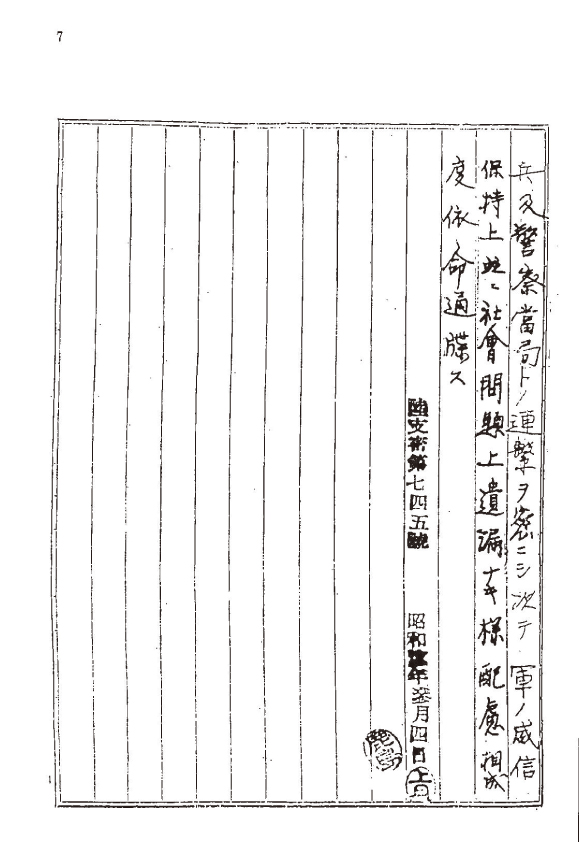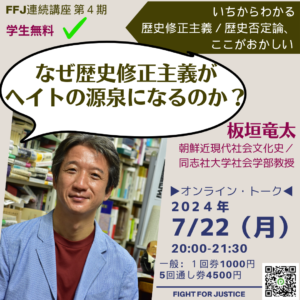Notice Sent by the Adjutant General of the Ministry of Army
An incident had occurred when the contractors selected by the troops dispatched to China (the North China Area Army and the Central China Expeditionary Army) used abduction-like methods within Japan in order to collect “comfort women” to be brought abroad. As a result, a notice was sent on March 4, 1938 by the Adjutant General of the Ministry of Army, stipulating that expeditionary forces must become stricter in selecting contractors and must work closer with local civilian and military police in recruitment.


This document tells us one of two things. One possibility is that from this date forward the recruitment of “comfort women” would be conducted by contractors selected by the Japanese Military in a close working relationship with civilian and military police in Japan, Taiwan, and Korea.
However, it is a fact that Korean and Taiwanese contractors routinely kidnapped and trafficked women overseas, and transported women under 21 years of age. Whether you call these crimes or merely violations of the law, the civil and military police are then accomplices. And the ones using the local contractors to round up the women were the Japanese expeditionary forces, along with the Korean and Taiwanese civil and military police, so it makes these the main culprits.
The other possibility is that although illegal activities were strictly monitored within mainland Japan, an educated guess can be made that a blind eye might have been cast on Korea and Taiwan. The notice states that if a problem occurred “within mainland Japan”, the prestige of the military would be damaged, so this second possibility may be closer to the truth. Even if this was the case, of course the responsibility still lies with the military.
When taking into consideration the course of events after the notice was issued, only the above two interpretations are possible.
This document is notable both because it had a huge influence on the recruitment of “comfort women”, and in particular because it proves that the Japanese military was deeply involved in said recruitment. We can see as false any reading that suggests “the military prevented contractors from using violence in recruitment”.
And the comfort stations were created for the military, by the military, as military facilities. Even when the running of the comfort stations was entrusted to contractors, management was under the control of the military. Comfort stations were essentially an institution of sexual slavery. The women couldn’t choose where they lived, they were forbidden to go outside with any degree of freedom, and they were forbidden to quit. The military shoulders the grave responsibility of having created the facilities, imprisoned the women inside, and forced them to perform sex acts with military personnel.
If such facilities had not been created, these serious violations of the women’s basic human rights would not have occurred, so any alleged positive impact of the military’s role is an impossibility.





